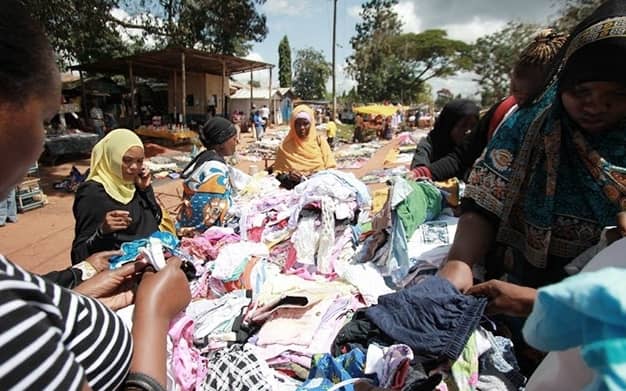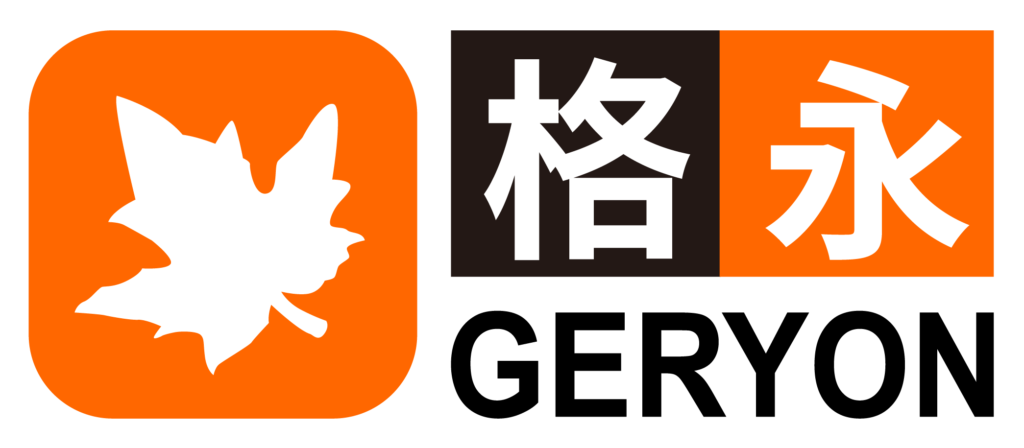As the second-hand clothing industry continues to boom, Sierra Leone’s role as a leading source of used clothes has gained international attention. For B2B importers, Sierra Leone used clothes offer a unique opportunity to meet the growing demand for affordable, quality clothing across Africa and beyond. In this article, we’ll guide you through the wholesale market of Sierra Leone used clothes, discussing key factors that can help your business succeed and capitalize on this expanding sector.
Table of Contents
1. Introduction to the Sierra Leone Used Clothes Market
Sierra Leone has become an important player in the used clothing trade in West Africa, with its thriving market and growing demand for affordable, quality second-hand garments. The country’s second-hand clothing market is largely driven by low-income consumers seeking budget-friendly options. With an expanding population and increasing urbanization, Sierra Leone used clothes have become a crucial part of the local retail industry. For B2B importers, this creates significant opportunities to source wholesale used clothes for distribution both within Sierra Leone and across neighboring countries in the region.
Understanding the Growing Demand for Used Clothes in Sierra Leone
Sierra Leone’s used clothing market has seen an increasing demand due to the affordability and variety offered by second-hand garments. The local population, especially in urban areas like Freetown, is drawn to the high quality and lower cost of imported used clothes compared to new garments. This growing demand presents a promising opportunity for B2B importers looking to tap into a market that values both affordability and sustainability. As the country’s middle class expands and fashion trends evolve, the demand for Sierra Leone used clothes is expected to continue rising, making it an attractive destination for wholesale suppliers.
The Role of Sierra Leone in the African Wholesale Market
Sierra Leone is strategically positioned within West Africa, making it an ideal gateway for used clothing imports into the region. The country’s ports, including the Freetown Port, play a significant role in facilitating the trade of second-hand goods, particularly used clothes. With a strong network of local distributors and wholesalers, Sierra Leone has become a central hub for used clothes trade within West Africa. By sourcing Sierra Leone used clothes, B2B importers can access not only the local market but also tap into neighboring countries, such as Liberia and Guinea, where demand for affordable second-hand clothing is also on the rise.
2. Key Opportunities for B2B Importers in Sierra Leone
The Sierra Leone used clothes market is brimming with opportunities for B2B importers. With a growing demand for second-hand garments and a lack of sufficient local production, the wholesale market for used clothes offers a reliable solution to meet consumer needs. Importers who understand the local demand dynamics and navigate the sourcing process effectively can benefit from the expanding market. This section will explore some of the key opportunities that B2B importers can seize in Sierra Leone’s used clothing market.
Why Sierra Leone Used Clothes Are in High Demand
The high demand for Sierra Leone used clothes is driven by several factors. First, the country’s economic conditions make second-hand clothing an attractive option for many consumers who cannot afford new clothes. Second, the quality and variety of used clothes, often imported from Western countries, meet the fashion preferences of the local population. Additionally, the resilience of the used clothing market in Sierra Leone, despite economic challenges, indicates a stable demand for affordable garments. This consistent demand offers B2B importers the chance to establish long-term, profitable partnerships with local wholesalers and retailers.
Key Benefits for B2B Importers Sourcing from Sierra Leone
B2B importers can benefit significantly from sourcing Sierra Leone used clothes. One of the major advantages is the relatively low cost of used garments compared to new clothes, which provides a competitive edge for wholesalers looking to meet the price-sensitive demands of the market. Additionally, the presence of well-established local distribution networks allows importers to easily establish supply chains and enter the market with minimal effort. Furthermore, as environmental sustainability becomes a key focus worldwide, importing Sierra Leone used clothes offers importers the opportunity to promote eco-friendly products that appeal to conscious consumers in Africa and beyond.
3. How to Source Quality Used Clothes in Sierra Leone
Sourcing quality Sierra Leone used clothes requires understanding local markets, building strong relationships with suppliers, and navigating the import process efficiently. B2B importers need to be strategic in selecting reliable suppliers who offer a consistent supply of high-quality second-hand garments. This section outlines the best practices for sourcing used clothes in Sierra Leone, ensuring that your business can secure a steady stream of quality products for wholesale distribution.
Best Practices for Finding Reliable Suppliers
Finding reliable suppliers in Sierra Leone is crucial for ensuring the consistent availability of quality used clothes. One of the most effective ways to identify trustworthy suppliers is by attending local trade shows or industry events, which offer the opportunity to meet and evaluate potential partners. In addition, connecting with local wholesale markets and distributors in major cities like Freetown can help establish direct relationships with suppliers who are familiar with the nuances of the used clothing market. By performing due diligence and vetting suppliers thoroughly, B2B importers can secure a dependable source of Sierra Leone used clothes.
Navigating Local Sourcing Channels and Trade Networks
To successfully source Sierra Leone used clothes, B2B importers need to understand the local sourcing channels and trade networks. Sierra Leone’s wholesale used clothing market operates through various channels, including large-scale markets, smaller retail shops, and direct shipments from international suppliers. Working with local agents or established trade partners who have local knowledge can make the sourcing process much smoother. It’s also beneficial to have a clear understanding of the logistics involved in importing goods, such as shipping costs, customs duties, and delivery timelines, to ensure efficient and cost-effective operations.
4. Market Trends and Insights for Sierra Leone Used Clothes
The market for Sierra Leone used clothes is influenced by both local and international trends. As the country’s economy grows and consumer behavior evolves, the demand for specific types of used clothing is shifting. For B2B importers, staying ahead of these trends is crucial for maximizing profits and meeting consumer needs. This section explores the latest market trends and insights that shape the Sierra Leone used clothes industry.
Current Trends Shaping the Used Clothing Market in Sierra Leone
Sierra Leone used clothes are becoming more diverse in terms of style and quality, driven by international imports from Europe, the United States, and other regions. One trend gaining traction is the increasing popularity of brand-name and designer second-hand clothing, which is perceived as a status symbol by some consumers. Additionally, there is a growing interest in eco-conscious fashion, with more Sierra Leonean consumers opting for used clothes as a sustainable choice. These trends open up new opportunities for B2B importers who can provide high-quality, trendy, and sustainable used clothing options to meet the evolving tastes of the market.
Predicting Future Growth and Opportunities
The used clothing market in Sierra Leone is expected to continue growing, driven by both demand and supply factors. With the rise of urbanization and an increasing middle class, more consumers are turning to affordable alternatives like second-hand clothes. As the government and international organizations focus on promoting sustainable practices, the demand for used clothing is likely to increase further. For B2B importers, this presents an opportunity to establish themselves as key players in the wholesale market by aligning their offerings with future market trends and consumer preferences.
5. Challenges in the Sierra Leone Used Clothes Wholesale Market
While the Sierra Leone used clothes market presents numerous opportunities, it is not without its challenges. B2B importers need to be aware of the obstacles that may arise in sourcing, shipping, and distributing used clothes. This section outlines the key challenges importers might face in the Sierra Leone market and provides insights into overcoming these hurdles.
Understanding Regulatory and Logistical Challenges
Importing Sierra Leone used clothes comes with its share of regulatory and logistical challenges. Importers must comply with local customs regulations, which may include duties, taxes, and other import restrictions. Additionally, the infrastructure for transporting goods within the country can sometimes be a barrier to timely and cost-effective deliveries. Understanding these regulatory requirements and logistical issues is crucial for ensuring smooth operations when sourcing used clothes from Sierra Leone. Partnering with local experts who are familiar with these processes can help B2B importers navigate the challenges efficiently.

Overcoming Importation Hurdles and Market Barriers
In addition to regulatory and logistical challenges, B2B importers must also overcome market barriers, such as the presence of informal channels and competition from local vendors. These challenges can make it harder for importers to establish a strong market presence. However, by offering a reliable supply of high-quality, well-priced used clothes and building strong relationships with local distributors, importers can position themselves to overcome these market barriers. Furthermore, taking a proactive approach to understand the needs of local consumers will allow importers to better tailor their offerings to the Sierra Leone used clothes market.
6. How to Build Successful B2B Relationships in Sierra Leone
Building strong, long-lasting B2B relationships is key to success in the Sierra Leone used clothes market. Whether you are working with suppliers, distributors, or retailers, having a reliable and trustworthy network is essential for maintaining consistent operations. This section provides practical tips on how to establish and maintain successful business relationships in Sierra Leone.
Tips for Establishing Trust and Negotiating with Local Suppliers
Establishing trust with local suppliers in Sierra Leone is crucial for securing quality used clothes at competitive prices. B2B importers should prioritize transparency, clear communication, and fair business practices to build lasting relationships. Additionally, understanding local cultural norms and business etiquette can go a long way in strengthening partnerships. Negotiating favorable terms, such as payment schedules and delivery timelines, will also help create mutually beneficial agreements that foster long-term cooperation.
The Importance of Long-Term Partnerships in the Wholesale Market
In the wholesale market for Sierra Leone used clothes, long-term partnerships are vital for sustained success. By working closely with local distributors and suppliers, importers can ensure a steady supply of quality garments and secure preferential pricing. Additionally, long-term partnerships allow for better risk management, as importers and suppliers can collaborate to adapt to market changes and overcome potential challenges. Cultivating strong, trusted partnerships in Sierra Leone’s used clothes market will provide a solid foundation for








